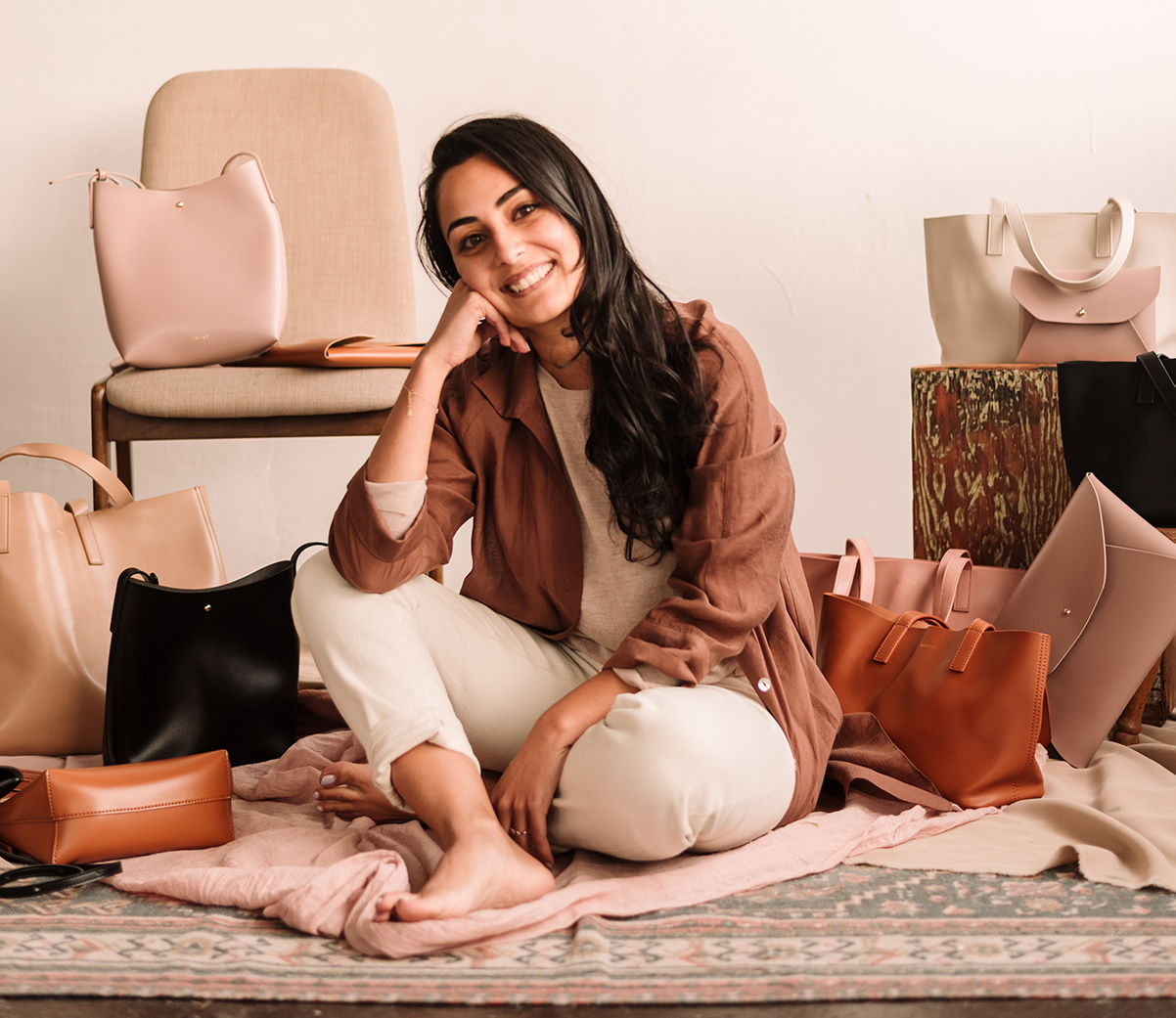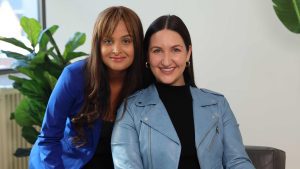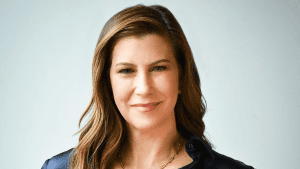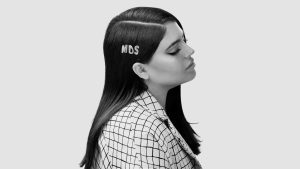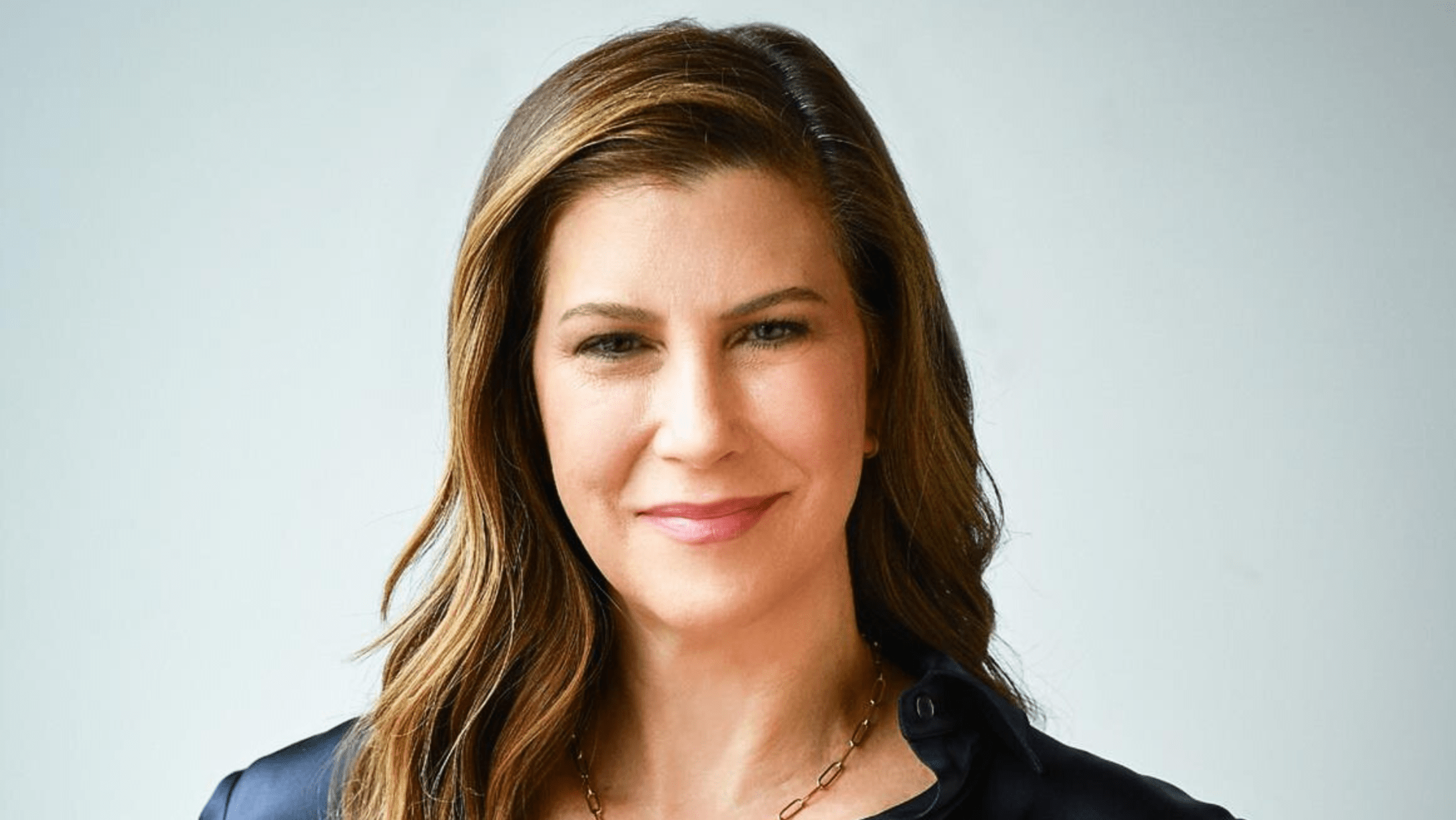[vc_row][vc_column][vc_column_text]Salima Visram was on the hunt for a sleek, minimalist bag that wasn’t made out of leather or covered in branding. When she couldn’t find one, she made her own.
Now, Visram’s designs are in the hands of thousands of people across the world. With their buttery soft vegan leather, simple designs and beautiful colours, SAMARA bags are quickly becoming a favourite of those with classic style and an eco-conscious mindset.
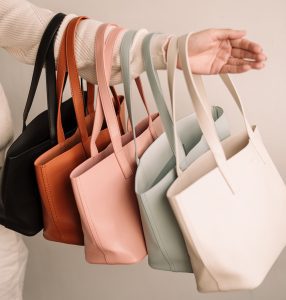

“My parents always made sure that I knew that I was extremely lucky and that I had a responsibility to use my education in some way to kind of give back to the people around me,” she said. “And so that’s what led me to study International Development.”
Visram designed a backpack that had a solar panel on it that could charge a lamp and be lit at night. She called it the Soular Backpack, and through charging the lamp during the walk to and from school, children in East Africa were able to do their homework at night without the use of kerosene.
The Soular Backpack was a great success. Along with recieving recognition from Disney and acclaimed actress, Lupita Nyong’o, backpacks were distributed across East Africa. While the company set up a factory in Kenya to make the bags, Visram knew she wanted to do more to help out her home country.
“At the end of 2017, I was kind of at a point where I felt like it was going well, but I was always asking for donations and I didn’t like that,” she said. “I felt like the impact that I wanted to create was to build a solid business and reinvest the profits or direct the profits towards doing good in some way in Kenya.”


This realization came around the same time that Visram was looking for a bag.
After designing the bag of her dreams, she sent the request to one of her suppliers. After family and friends started asking where she got the bag, Visram thought that she might be onto something. With $500 and a production run of 10 bags, she listed them online and crossed her fingers. They sold out overnight.
Over two years later, SAMARA continues to uphold the values that Visram had when starting out on her journey. A portion of SAMARA profits goes towards continuing the Soular Backpack initiative and donating backpacks to those in need.
A self-described social entrepreneur, Visram is dedicated to building the brand, while doing good for the world. Her most recent initiative came about during the COVID-19 pandemic; for every dollar spent at SAMARA, they would send a meal to someone in need in Kilifi, Kenya. In two and a half weeks, the SAMARA community was able to provide 165,000 meals to the Kilifi community.
As SAMARA continues to expand, Visram is excited for the possibilities and initiatives that can be put in place to better serve the place she grew up in and the overall environment.
For this week’s Women Who Lead spotlight, Bay Street Bull spoke with Salima Visram about following your passion, being purposeful and changing the world for good.[/vc_column_text][vc_text_separator title=”Q&A” color=”chino” border_width=”4″][vc_column_text]
What sparked the creation of SAMARA?
I think there were two things. One was this desire or urgency where I felt like there was this problem that needed to be fixed in the world. I wanted to find a sustainable way to do that and create impact.
Then the second was that I had just lost my mom. So, I really wanted to channel all that energy into building something or doing something productive. I think in hardship you can just sit in it, and I was sitting in it for a while, but then I was like, ‘You know what? She always embodied strength and courage and would not want me to just sit in sadness.’ So I kind of used that energy and decided to build something that is an embodiment of her, and is something that reflects the beauty, the elegance and the kindness that she lived her life through.
That’s awesome and really inspiring. I think when companies know what they stand for, they can be much more successful.
I hope so. It’s definitely interesting because we’re kind of taking the slower approach where we want to be intentional about what we do. We’re not venture backed, so we’re completely bootstrapped and it’s definitely been a roller coaster ride.
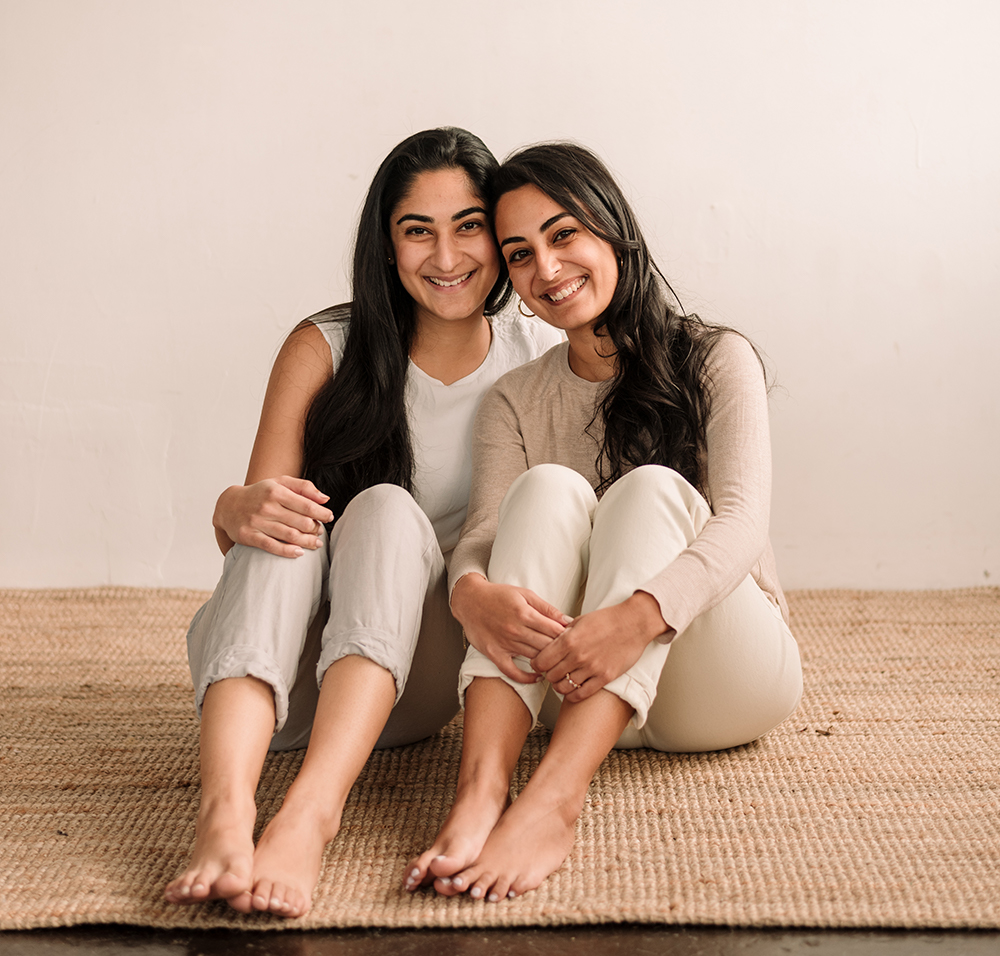

The brand is named after your sister, and she is also helping with the business. What has that experience been like building an entrepreneurial journey with your sister?
It’s been amazing. She joined me last summer, and she’s been with us for about eight months. It’s been amazing to have her be a part of it because it was the first time that I felt like this could be something bigger than just me. Having her come on was the first step in me being like, ‘We can actually build this, this can actually be something.’ And it’s cool because she has a different skill set to what I have, and at the same time, she just graduated, so she’s exploring what she wants to do and kind of finding her path.[/vc_column_text][vc_row_inner][vc_column_inner][vc_column_text]
You studied International Development in school, and now you’re creating these beautiful minimalistic designs. How did those two merge and where does your sense of design come from that?
Honestly, I don’t think they merge. Sometimes, I don’t know how this all has happened. [laughs]
I always used to say, ‘Oh, I wish I did engineering. I wish I studied something different.’ And I think it’s just a testament to that you can do anything that you want. You don’t have to study fashion design to create a bag, and even with the Soular Backpack, I wasn’t an engineer. You can find people to help you along the way, and you get inspiration from a lot of different places. Up until three months ago, all of our sketches were literally drawn on paper. Now we’ve started using tech and getting into more technical drawings and stuff, but I think it’s just a learning process.
It’s about if you feel interested in something. I’m a huge advocate for throwing yourself in and just trying to do it. A lot of people think that you have to have studied something or you have to be on a certain path if you want to pursue something, but I think the world is truly there for us to just do what we want in it, you know?
You describe yourself as a social entrepreneur, why is it important to you to have a social impact and not just a business?
I think right now—especially right now—it’s in the hands of corporations to create change and to be the leaders in making the world better. There are so many brands and companies that I look up to, and I feel like they’re not doing enough. I see a huge opportunity to build SAMARA, but at the same time, really create employment, good employment, for people all along our supply chain.
Our goal one day is to have factories in Kenya and provide the best type of employment there is out there. With Soular Backpack, I realized it’s great to provide children with lights, but if their families don’t have food and water, there has to be a more holistic approach to being able to uplift someone from poverty or to empower them to uplift themselves out of poverty. Companies have a platform and they are able to make the choices, of who they work with and who they employ and what type of supply chain they want to build.[/vc_column_text][/vc_column_inner][/vc_row_inner][vc_row_inner][vc_column_inner width=”1/2″][vc_single_image image=”18548″ img_size=”500×500″][/vc_column_inner][vc_column_inner width=”1/2″][vc_single_image image=”18528″ img_size=”500×500″][/vc_column_inner][/vc_row_inner][vc_column_text]
Another socially conscious thing you’re doing is using vegan leather for all of SAMARA products. Why did you choose to go that route?
When I first started SAMARA I was looking for a bag and I personally wanted it to not be made out of leather. When I actually thought about what it was going to be made out of, I thought, ‘I would rather it not be made from a dead animal’s hides.’ So that part just came naturally. As we’re growing and as I’m doing more research, we’re really understanding the intricacies of vegan leather as well. It’s a better option than leather, but it’s not the best option because it still has an environmental footprint and it’s still made out of plastic. It’s a step in the right direction, but it’s definitely not the end all, which is what a lot of people think right now.
I think it’s really important to educate people that it’s a step in the right direction, but it’s still not there yet. That’s why now the next phase of what we’re doing is trying to develop our own materials, trying to work with materials that are actually having a positive impact on the environment rather than a negative one. We never use PVC, which is what most of the vegan leathers are made out of, and is really detrimental to the environment because it’s petroleum based. We try to use water-based PU wherever we can, and now we have bags made out of apple leather—we’re hoping to have our whole collection made out of that by the end of the year.
It seems like you guys have made lots of steps towards constantly improving things, environmentally and socially. Were there any big challenges you faced in the process of creating SAMARA and getting to where you are now?
For sure, there’s challenges every day. In the last year we’ve grown quite a bit, so that’s been amazing. But before that, when I was just doing it on my own, there were so many times when I didn’t know whether we could survive certain things that happened to the company. Things like when we had a shipment that was lost. I didn’t take a salary until July of the first year because I wanted to save up and put everything into buying inventory for the holiday season. We had taken preorders, we put in the order, we got it ready on time, and then it just went missing during transit and no one knew where it was. At that point I was like should we just shut down the company and take a loan to return people’s money back? It was a mess.
That was definitely one, but things happen all the time. We’ve had the logo printed wrong, and I think these production errors happen all the time, even now. It’s a constant work in progress. [/vc_column_text][vc_single_image image=”18530″ img_size=”full” alignment=”center”][vc_column_text]
What advice would you give to other young female entrepreneurs who have an idea and are passionate about something and are trying to bring it to life?
I’ve always gone back to this quote, ‘ As women, we find nine reasons to do something and one reason not to do it and we’ll let that one reason stop us.’ And I just think that life is too short.
If you have a healthy body and you’re able to live a day without pain and you have a lot of things that other people don’t, like a fridge full of food or a comfy home to be in, I think that’s a privilege. With that privilege comes a responsibility to follow your dreams and to do yourself justice by being whoever you want to be and being the best version of yourself as well. Don’t let your own limitations stop you, because there’s always going to be reasons not to do something, but you just have to power through and go for it.
Is there any advice you would give to your own younger self?
Probably that things take time. I think that sometimes I have this urgency to see this goal and I want it now. Now I’m realizing that it is a long process and it probably wouldn’t have been as fun if we didn’t have those challenges. It’s the length of time that makes it all worth it. Just keep doing your thing. Don’t stress about it taking awhile because that time will come and things take time. [/vc_column_text][vc_single_image image=”18568″ img_size=”full” alignment=”center”][vc_column_text]
You’ve kind of touched on it, but where would you like to see the company in 5, 10 years?
I think it would be really cool to have factories in Kenya and tie the whole brand to creating impact really on the ground where I grew up: through factories to employment, through developing our own materials, innovating things on the ground there and being a really good employer for people who live on that side of the world.
Then, in North America, I hope to be a brand that really stands to empower our customers and be close with our customers. I want to always be intentional about what we do and why we’re doing it. So, being conscious about the waste that we’re producing, what we’re doing with that waste and telling the stories of the materials that we’re using. I’d like to have a large community of customers who are proud to be SAMARA customers and who know why they’re buying, what they’re buying.
Do you have a personal favourite SAMARA product?
I use my Mini every day, that was our first product and I think it’s a customer favorite. But also The Weekender, because it’s a special bag and we worked really hard on it. It was a huge step for us because it was the biggest bag that we had ever made and the first time that we went into a project that deep, so probably that one.
Do you have any secrets on upcoming designs or things that customers can expect in the future?
We have a lot of really cool things in the pipeline. We’re experimenting with expanding the product line a little bit. So, maybe going into a bit of clothing, which we’re really excited about. At the end of the day we just design things based on what our community wants and what our team feels like we need. We’ve done quite a bit of crowdsourcing during the quarantine and really listened to our customers and designed things with them. We have a line coming out made from recycled plastic bottles and it’s not bags. I don’t know how much to say, but lots to look forward to. [/vc_column_text][vc_separator color=”chino” style=”dotted” border_width=”6″][/vc_column][/vc_row]


